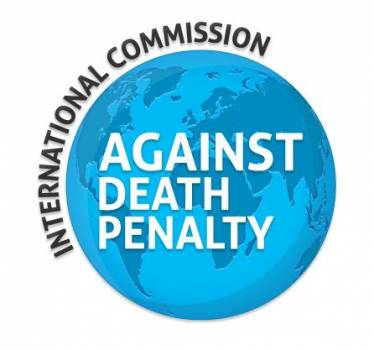Statement by the International Commission against the Death Penalty on Belarus: Execution of Ryhor Yuzepchuk
-

- International Commission against the Death Penalty
The International Commission against the Death Penalty (ICDP) condemns the execution of Ryhor Yuzepchuk (45) by authorities in Belarus; the second in
2014.
The exact date of Ryhor Yuzepchuk’s execution is not clear; the Mogilev
regional court in western Belarus reportedly confirmed the execution after it
became public knowledge on 8 May. His execution could, reportedly, have
taken place in April. In Belarus, executions are carried out by shooting; and its
Criminal Executive Code provides for the government to not return the bodies
of those executed to their families and not to inform them of where their body is
buried.
According to reports reaching ICDP, Ryhor Yuzepchuk was initially sentenced
to death in April 2013 for the June 2012 murder of his cell mate in a prison in
Mogilev. He was already serving a 25-year sentence on charges of committing
a double murder. The Supreme Court upheld his death sentence in July 2013.
Mr. Yuzepchuk’s execution is the second execution to be carried out by
authorities in Belarus this year. In April, authorities informed the lawyer of
Pavel Selyun (24) that his client had been executed.
In April 2014, the UN Special Rapporteur on the situation of human rights in
Belarus, Miklos Haraszti, expressed concern at the lack of transparency that
surrounded the death penalty system in the country. Earlier in October 2013,
he had stated that “the way the death penalty is carried out in Belarus amounts
to inhuman treatment.” Death sentences are often imposed after unfair trials,
include forced confessions, and are implemented in strict secrecy, without
giving adequate notice to prisoners, their families or legal representatives.
Belarus is the only European country that still carries out executions.
“ICDP and I call on the authorities in Belarus to stop carrying out any further
executions, to commute all death sentences to terms of imprisonment and
declare an official moratorium on executions as a first step towards abolition of
capital punishment in line with United Nations General Assembly Resolutions
adopted in 2007, 2008, 2010 and 2012,” said ICDP President Federico Mayor.
ICDP further calls on Belarus to join some 160 countries from all regions who,
according to the United Nations, have abolished the death penalty or do not
execute – having recognized that modern justice systems can protect the
public from crime without the irrevocable and cruel nature of the death penalty
and the constant risk of executing an innocent person.
Federico Mayor
President of the International Commission
against the Death Penalty
Background
ICDP was founded in Madrid in October 2010. The Commission is composed
of 15 persons of high international standing from all regions of the world who
act with total independence and neutrality and work under its President Mr.
Federico Mayor. ICDP opposes the death penalty under any circumstances
believing that it violates the right to life enshrined in the Universal Declaration
of Human Rights. The Commission promotes the abolition of capital
punishment in law in those states that observe a de facto moratorium on the
use of the death penalty and promotes moratoriums on executions in states
that rarely use the death penalty. In states that continue to carry out
executions, ICDP urges strict adherence to international standards. The
Commission works with the United Nations and other international and regional
organizations, governments and nongovernmental organizations to further the
abolition of capital punishment worldwide. The work of the ICDP is supported
by a diverse group of 18 states from all regions of the world that are committed
to abolition of the death penalty. Its secretariat is based in Geneva.

